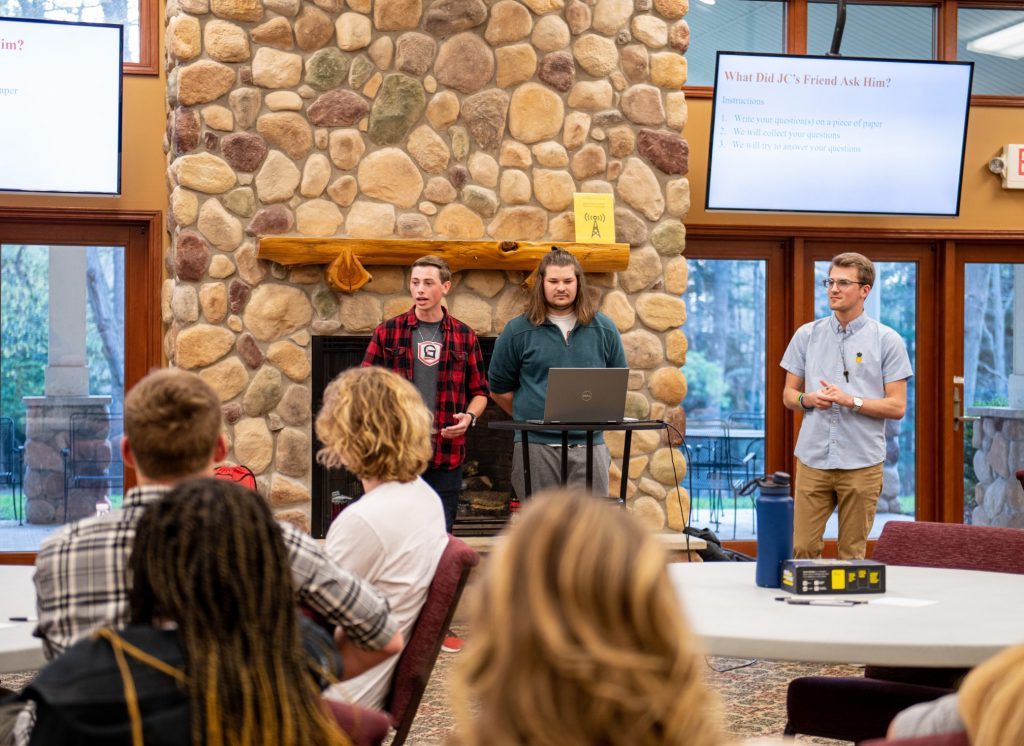If you’re trying to figure out how to become a youth pastor, the first thing you’ll want to do is to secure two items: a Bible and a dodgeball.
Ok, it’s a little more complicated than that. And yet, these two items represent the greatest needs of teenagers. The Bible, clearly, is the Word of God and represents the spiritual needs that all mankind shares. Less obvious might be the dodgeball. While it may appear to be nothing but an adrenaline-filled opportunity for teens to throw balls at one another, it is much more than that. For the sake of this article, the dodgeball represents the relational needs of teenagers.
Together the Bible and the dodgeball define the building blocks to answer the question: “What is youth ministry?” So if youth ministry is about developing youth spiritually and relationally, what are the qualifications for a role in youth ministry? Let’s break this down into some practical steps. Here are three points to consider if you’re wondering how to become a youth pastor.
Make sure you are called.
As with the pursuit of any ministry vocation, step one of how to become a youth pastor is to be sure you are called by God into this important work and role. The hardships of ministry have been well documented. You will deal with complaints, bitterness, anger, and strife. Oh, and did we mention complaints? This is just from the people in the church!
Pastors will also deal with the questions of an onlooking world, asking questions of eternal value, questions of identity and value. This reality is compounded in youth ministry as teens begin to discover a faith they can call their own.
Let’s not forget James’ warning that those “who teach will be judged more strictly.” (James 3:1). Far from a reason to run the other way, it is a reminder of the high responsibility and greater accountability placed on those who respond to the call of youth ministry.
The tasks are never-ending, and if you cannot remember why you first accepted a youth pastor role, burnout will come quickly. You will want to make sure you have your Bible and a dodgeball. The Bible will be a continual reminder of where your hope rests and from Whom you received your calling. The dodgeball, and the fun memories it brings, will help you recall your love for interacting with teenagers.
Make sure you are educated.
Oh, ok, you were expecting the sales pitch, right? After all, this is a college and seminary blog. But you were probably assuming it would come at the end when you could more easily ignore it. It’s ok, you can be honest with us.
We’ll be honest as well. We do offer a Youth Ministry degree, but it’s not because we had an excess of Bibles and dodgeballs to hand out. It’s because youth ministry is real ministry. One question that lifelong youth pastors often get asked is when they will become a real pastors as if ministering to teenagers is somehow relegated to junior varsity status. Rest assured, the ministry is not ranked by age!
Teens, many of whom are in the public school system, are on the front lines of the cultural wars, so ensuring they are ready to give an answer for the hope that they have is critical. (1 Peter 3:15) This means youth pastors must be equipped to teach the gospel clearly. Arming yourself with a seminary education is the start of a lifelong process of knowing how to study, interpret, and teach the Word of God.
Don’t forget the dodgeball in this equation of how to become a youth pastor. You will want to stay on top of current trends for teens and figure out how to best engage them on those topics. The youth ministry program at Grace College includes courses on contemporary issues and strategies for running a youth ministry with excellence.





